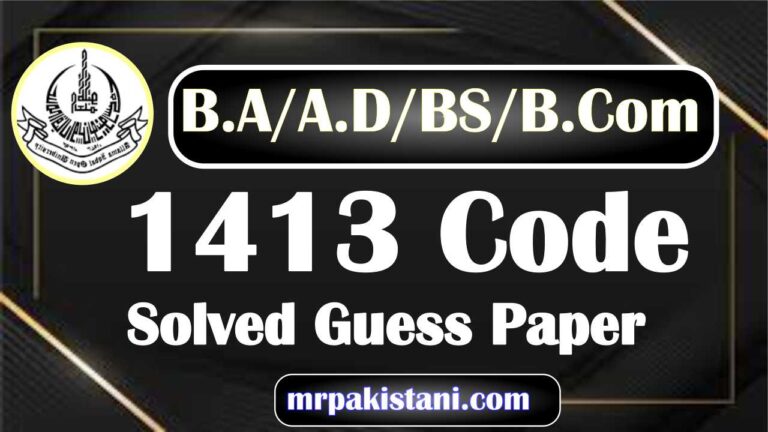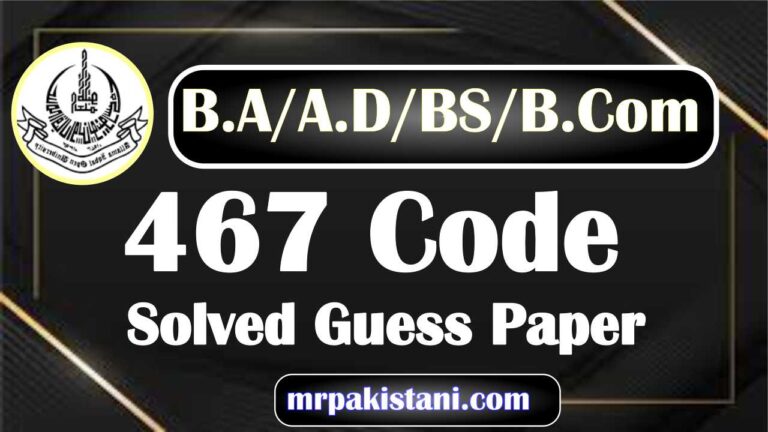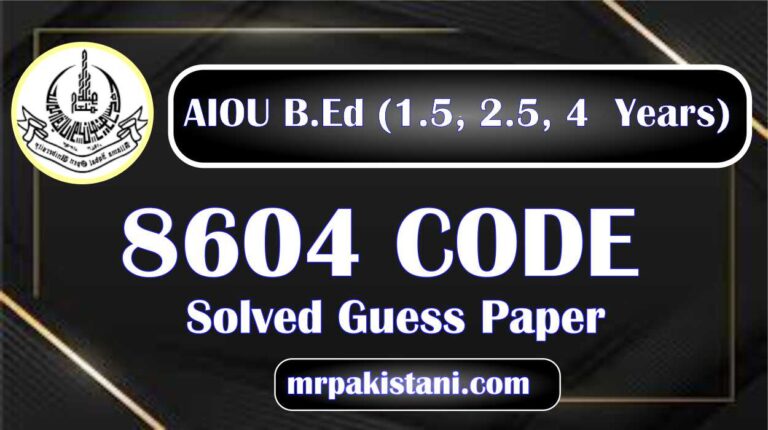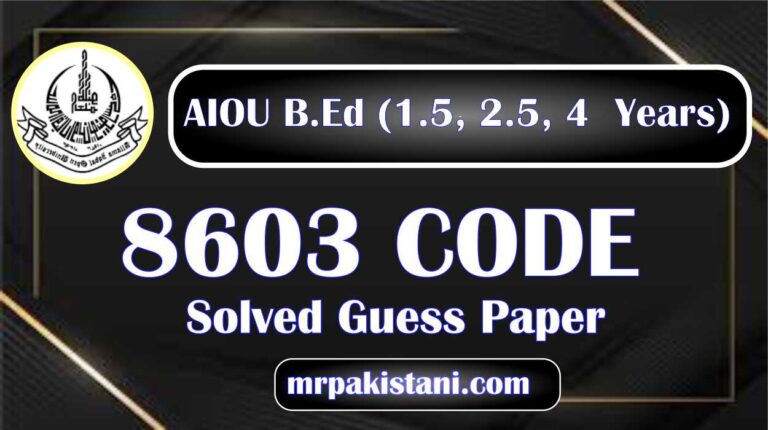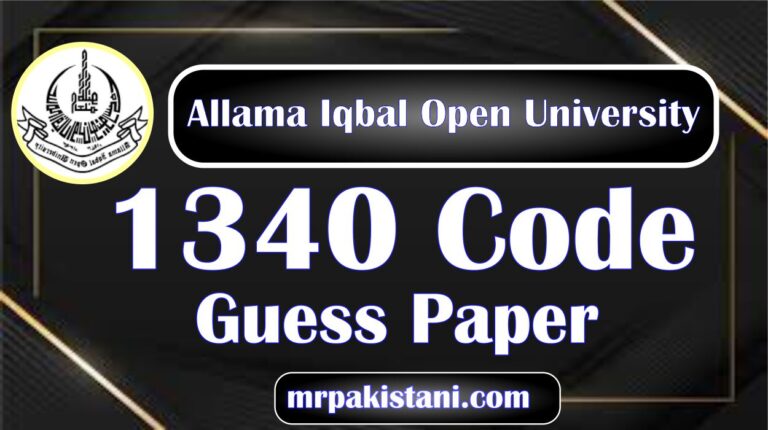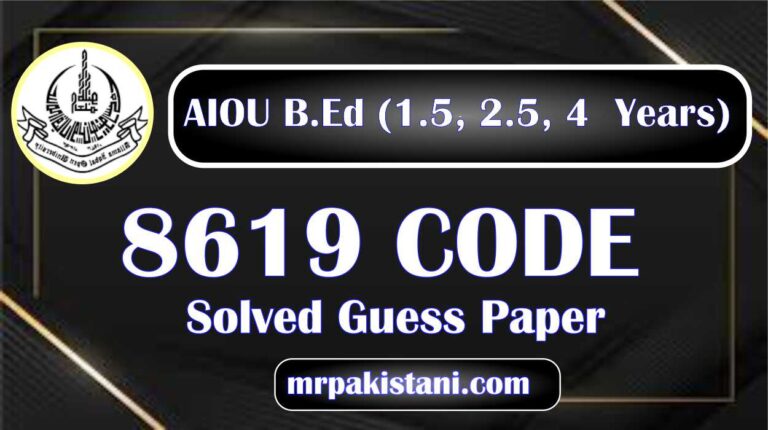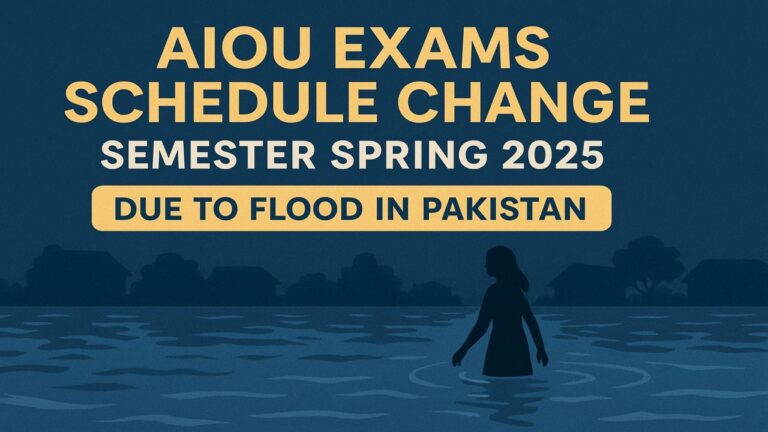Question 1:
Create WH-questions for the following categories (Time, Place, Reason, Object, Possession, Person, Manner, Choice).
Create WH-questions for the following categories (Time, Place, Reason, Object, Possession, Person, Manner, Choice).
Answer:
Introduction:
WH-questions are questions that begin with words like When, Where, Why, What, Whose, Who, How, Which. These words are used to ask about different kinds of information such as time, place, reason, person, object, possession, manner, and choice. They help us gather specific details instead of simple “Yes” or “No” answers.
Body:
Conclusion:
In conclusion, WH-questions are very useful in daily communication as they help us ask about specific details. They are not limited to one type of answer but cover many areas like time, place, reason, object, possession, person, manner, and choice. By practicing these types of questions, students can improve both their speaking and writing skills effectively.
WH-Questions with Categories and Examples
Introduction:
WH-questions are questions that begin with words like When, Where, Why, What, Whose, Who, How, Which. These words are used to ask about different kinds of information such as time, place, reason, person, object, possession, manner, and choice. They help us gather specific details instead of simple “Yes” or “No” answers.
Body:
- Time:
- When does the concert start? → The concert starts at 8 PM.
- When did you arrive? → I arrived at 5 PM.
- When is your birthday? → My birthday is in June.
- When will the movie begin? → The movie will begin at 7 PM.
- Place:
- Where did you park the car? → I parked the car in the garage.
- Where are they going? → They are going to the mall.
- Where does he live? → He lives in London.
- Where can I find a pharmacy? → You can find one near the market.
- Reason:
- Why is she crying? → She is crying because she lost her keys.
- Why are you late? → I missed the bus.
- Why did he leave early? → He had an emergency.
- Why should we exercise daily? → It keeps us healthy.
- Object:
- What are you cooking for dinner? → I am cooking pasta for dinner.
- What did he buy from the market? → He bought some fruits.
- What is your favorite hobby? → My favorite hobby is reading.
- What do you want for breakfast? → I want an omelet.
- Possession:
- Whose notebook is this? → This notebook belongs to Ali.
- Whose bag is on the table? → It is Sara’s bag.
- Whose phone rang just now? → It was Ahmed’s phone.
- Whose car is parked outside? → It is my uncle’s car.
- Person:
- Who won the competition? → Maria won the competition.
- Who is calling me? → Your sister is calling you.
- Who is your best friend? → My best friend is Ali.
- Who teaches you mathematics? → Mr. Khan teaches me mathematics.
- Manner:
- How did you fix the computer? → I fixed the computer by restarting it.
- How do you make a cake? → You mix the ingredients and bake it.
- How does she drive? → She drives carefully.
- How can I improve my English? → Practice daily and read books.
- Choice:
- Which book do you prefer, fiction or non-fiction? → I prefer fiction books.
- Which color do you like more, blue or green? → I like blue.
- Which sport do you enjoy playing? → I enjoy playing football.
- Which subject is more difficult, math or science? → Math is more difficult.
Conclusion:
In conclusion, WH-questions are very useful in daily communication as they help us ask about specific details. They are not limited to one type of answer but cover many areas like time, place, reason, object, possession, person, manner, and choice. By practicing these types of questions, students can improve both their speaking and writing skills effectively.
Question 2:
Add appropriate tag questions to the statements below.
Add appropriate tag questions to the statements below.
Answer:
Introduction:
A tag question is a short question added to the end of a statement, usually to confirm or check information. The structure depends on the auxiliary or modal verb in the statement. If the statement is positive, the tag is negative; if the statement is negative, the tag is positive.
Body:
The following table presents statements with their correct tag questions and answers:
Conclusion:
In conclusion, tag questions are useful tools for seeking confirmation, clarification, or agreement in conversations. By practicing these, one can improve fluency and communication skills in English.
Tag Questions with Answers
Introduction:
A tag question is a short question added to the end of a statement, usually to confirm or check information. The structure depends on the auxiliary or modal verb in the statement. If the statement is positive, the tag is negative; if the statement is negative, the tag is positive.
Body:
The following table presents statements with their correct tag questions and answers:
| No. | Statement | Tag Question | Answer |
|---|---|---|---|
| 1 | Hira is a grandmother. | Isn’t she? | Yes, she is. |
| 2 | Hussain is a doctor. | Isn’t he? | Yes, he is. |
| 3 | I’m here. | Aren’t I? | Yes, you are. |
| 4 | It’s windy today. | Isn’t it? | Yes, it is. |
| 5 | You and I are busy right now. | Aren’t we? | Yes, we are. |
| 6 | He failed the exam. | Didn’t he? | Yes, he did. |
| 7 | He won’t come here to live. | Will he? | No, he won’t. |
| 8 | You don’t live here. | Do you? | No, I don’t. |
| 9 | You have started a new job. | Haven’t you? | Yes, I have. |
| 10 | It wasn’t a good film. | Was it? | No, it wasn’t. |
| 11 | They can swim well. | Can’t they? | Yes, they can. |
| 12 | He never tells lies. | Does he? | No, he doesn’t. |
| 13 | We should help the poor. | Shouldn’t we? | Yes, we should. |
| 14 | She has a pet cat. | Doesn’t she? | Yes, she does. |
| 15 | They weren’t at home. | Were they? | No, they weren’t. |
| 16 | The sun rises in the east. | Doesn’t it? | Yes, it does. |
| 17 | You didn’t call me. | Did you? | No, I didn’t. |
| 18 | She is coming tomorrow. | Isn’t she? | Yes, she is. |
| 19 | They weren’t sleeping. | Were they? | No, they weren’t. |
| 20 | Let’s go for a walk. | Shall we? | Yes, let’s go. |
Conclusion:
In conclusion, tag questions are useful tools for seeking confirmation, clarification, or agreement in conversations. By practicing these, one can improve fluency and communication skills in English.
Question 3:
Make five sentences each from the following list of modal verbs: Can, Might, Should, Must, Would.
Make five sentences each from the following list of modal verbs: Can, Might, Should, Must, Would.
Answer:
Introduction:
Modal verbs are auxiliary verbs that express necessity, possibility, ability, permission, or obligation. They are used before the main verb and help convey the speaker’s attitude or intention. Below are examples of five important modal verbs: Can, Might, Should, Must, and Would.
Body:
Conclusion:
In conclusion, modal verbs such as can, might, should, must, and would enrich our communication by expressing different shades of meaning. They help convey ability, probability, obligation, necessity, or hypothetical situations, making sentences more precise and meaningful.
Sentences Using Modal Verbs
Introduction:
Modal verbs are auxiliary verbs that express necessity, possibility, ability, permission, or obligation. They are used before the main verb and help convey the speaker’s attitude or intention. Below are examples of five important modal verbs: Can, Might, Should, Must, and Would.
Body:
- 1. Can (Ability, Permission, Possibility, Request):
- I can speak three languages fluently. (Ability)
- Can you help me carry these boxes? (Request)
- We can visit the beach tomorrow if the weather is good. (Possibility)
- She can’t attend the meeting today due to illness. (Inability)
- Can I use your laptop for a minute? (Permission)
- 2. Might (Possibility, Uncertainty, Suggestion, Doubt):
- He might join us for dinner later. (Possibility)
- It might rain, so take an umbrella. (Uncertainty)
- They might have already reached the airport. (Past Possibility)
- You might want to check the map before leaving. (Suggestion)
- The package might not arrive on time. (Doubt)
- 3. Should (Advice, Recommendation, Obligation, Suggestion, Criticism):
- You should exercise regularly to stay healthy. (Advice)
- We should leave early to avoid traffic. (Recommendation)
- He should apologize for his rude behavior. (Obligation)
- Should I call the manager to resolve this issue? (Suggestion)
- They should have informed us about the changes. (Criticism)
- 4. Must (Necessity, Rule, Assumption, Prohibition, Urgency):
- You must submit the assignment by tomorrow. (Necessity)
- Students must wear uniforms during exams. (Rule)
- She must be the new teacher; I haven’t seen her before. (Assumption)
- You must not smoke in this area. (Prohibition)
- I must finish this report before the deadline. (Urgency)
- 5. Would (Desire, Offer, Past Habit, Future in the Past, Hypothetical Situation):
- I would love to visit Japan someday. (Desire)
- Would you like some tea or coffee? (Offer)
- When I was a child, I would climb trees every evening. (Past Habit)
- He promised he would call me after the meeting. (Future in the Past)
- If I were rich, I would donate to charity. (Hypothetical Situation)
Conclusion:
In conclusion, modal verbs such as can, might, should, must, and would enrich our communication by expressing different shades of meaning. They help convey ability, probability, obligation, necessity, or hypothetical situations, making sentences more precise and meaningful.
Question 4:
Think of words which can be used as verbs as well as nouns. For each word that you can think of, write at least one sentence. Altogether write ten sentences of such kinds.
Think of words which can be used as verbs as well as nouns. For each word that you can think of, write at least one sentence. Altogether write ten sentences of such kinds.
Answer:
Introduction:
In English, many words can serve as both nouns and verbs. The meaning of the word changes depending on how it is used in a sentence. This flexible usage makes English rich and versatile. For example, the word “head” can refer to a part of the body when used as a noun, but it can also mean to lead or guide when used as a verb. Below is a list of commonly used words that can function in both ways, along with example sentences for clarity.
Body:
Conclusion:
In conclusion, words that function both as nouns and verbs enrich the English language by providing flexibility and variety in expression. By changing their usage, we can create different meanings without changing the word itself. Such words are very common in daily communication and make English more dynamic, practical, and easy to use.
Words Used as Both Nouns and Verbs
Introduction:
In English, many words can serve as both nouns and verbs. The meaning of the word changes depending on how it is used in a sentence. This flexible usage makes English rich and versatile. For example, the word “head” can refer to a part of the body when used as a noun, but it can also mean to lead or guide when used as a verb. Below is a list of commonly used words that can function in both ways, along with example sentences for clarity.
Body:
| No. | Word | Sentence as Noun | Sentence as Verb |
|---|---|---|---|
| 1 | Plan | The government announced a new economic plan. | We need to plan the event carefully. |
| 2 | Light | The light in the room is too dim. | Please light the candles for the ceremony. |
| 3 | Book | I borrowed a book from the library. | Did you book the tickets for the concert? |
| 4 | Change | The sudden change in weather surprised everyone. | Let’s change our route to avoid traffic. |
| 5 | I received an urgent email from my boss. | Please email me the report by tomorrow. | |
| 6 | Play | The children enjoyed the school play. | Let’s play chess after dinner. |
| 7 | Water | The water in the bottle is cold. | Don’t forget to water the plants. |
| 8 | Watch | My watch stopped working yesterday. | I love to watch movies on weekends. |
| 9 | Break | Take a short break after studying for hours. | Be careful not to break the vase. |
| 10 | Call | I missed your call last night. | Please call me when you arrive. |
Conclusion:
In conclusion, words that function both as nouns and verbs enrich the English language by providing flexibility and variety in expression. By changing their usage, we can create different meanings without changing the word itself. Such words are very common in daily communication and make English more dynamic, practical, and easy to use.
Question 5:
Express degrees of certainty: Add words or phrases to the following sentences to express varying degrees of certainty.
Express degrees of certainty: Add words or phrases to the following sentences to express varying degrees of certainty.
Answer:
Introduction:
In English, certainty means how sure or confident we are about something. We can use special words and phrases to show whether we are completely sure, somewhat sure, or not very sure about an event or a statement. For example, if we say “It will certainly rain”, it shows strong confidence, but if we say “It might rain”, it shows doubt. These degrees of certainty are useful in communication, as they help us express our thoughts more clearly and accurately.
Body:
The following table shows examples of sentences with three levels of certainty: High Certainty, Medium Certainty, and Low Certainty.
Conclusion:
In conclusion, expressing certainty is an important part of communication. By using words like definitely, certainly, probably, likely, may, and might, we can show different levels of confidence in what we say. This helps the listener understand whether we are completely sure, fairly sure, or unsure about a situation. Mastering these expressions makes our language richer, clearer, and more precise.
Expressing Degrees of Certainty
Introduction:
In English, certainty means how sure or confident we are about something. We can use special words and phrases to show whether we are completely sure, somewhat sure, or not very sure about an event or a statement. For example, if we say “It will certainly rain”, it shows strong confidence, but if we say “It might rain”, it shows doubt. These degrees of certainty are useful in communication, as they help us express our thoughts more clearly and accurately.
Body:
The following table shows examples of sentences with three levels of certainty: High Certainty, Medium Certainty, and Low Certainty.
| Sentence | High Certainty | Medium Certainty | Low Certainty |
|---|---|---|---|
| It is going to rain tomorrow. | It will certainly rain tomorrow. | It is likely to rain tomorrow. | It might rain tomorrow. |
| I will join you. | I will definitely join you. | I will probably join you. | I might join you. |
| He is a liar. | He is undoubtedly a liar. | He is probably a liar. | He might be a liar. |
| I told you about him many times. | I have certainly told you about him many times. | I have likely told you about him many times. | I may have told you about him many times. |
| This budget is not beneficial for poor people. | This budget is definitely not beneficial for poor people. | This budget is probably not beneficial for poor people. | This budget might not be beneficial for poor people. |
| He will win the match. | He will definitely win the match. | He will probably win the match. | He might win the match. |
| They have completed the project. | They have certainly completed the project. | They have likely completed the project. | They may have completed the project. |
| She is telling the truth. | She is undoubtedly telling the truth. | She is probably telling the truth. | She might be telling the truth. |
| This medicine will cure the disease. | This medicine will surely cure the disease. | This medicine will likely cure the disease. | This medicine may cure the disease. |
| We are going to be late. | We are definitely going to be late. | We are probably going to be late. | We might be late. |
Conclusion:
In conclusion, expressing certainty is an important part of communication. By using words like definitely, certainly, probably, likely, may, and might, we can show different levels of confidence in what we say. This helps the listener understand whether we are completely sure, fairly sure, or unsure about a situation. Mastering these expressions makes our language richer, clearer, and more precise.



